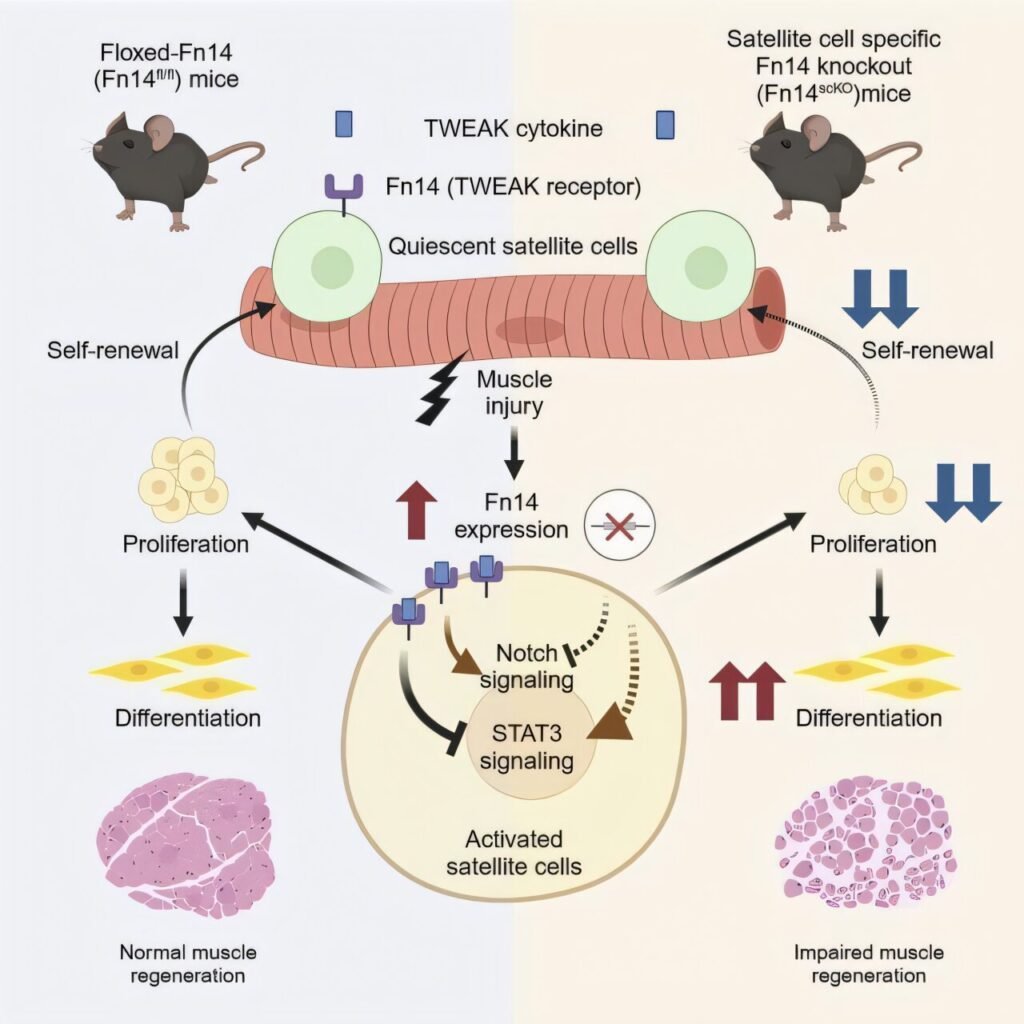The University of Houston College of Pharmacy has made a groundbreaking discovery that could revolutionize the way we approach muscle repair and regeneration. Led by Ashok Kumar, the Else and Philip Hargrove Endowed Professor of Drug Discovery, the research team identified a potential therapeutic target in muscular disorders by uncovering the role of a protein called Fn14 in regulating satellite cell stability and function.
Satellite cells, also known as muscle stem cells, play a crucial role in muscle growth, repair, and regeneration. The team’s findings, published in JCI Insight, shed light on how Fn14 helps preserve these essential cells and promote efficient muscle regeneration. Meiricris Tomaz da Silva, a postdoctoral fellow in Kumar’s lab and the first author of the study, emphasized the significance of understanding this mechanism in conditions like Duchenne muscular dystrophy and age-related muscle loss.
The study revealed that levels of Fn14 increase in satellite cells following muscle injury. This discovery is particularly relevant as a decrease in satellite cell content and function is a major contributor to skeletal muscle wasting in various conditions, including aging and degenerative muscle disorders.
Kumar’s research, published in Life Science Alliance as well, illustrates the critical role of Fn14 signaling in muscle progenitor cells. These early-stage cells aid in the formation of new muscle by multiplying and fusing with injured muscle fibers, facilitating repair and regeneration. By enhancing Fn14 levels in satellite cells, the team believes that this approach could be a promising therapeutic strategy for combating muscle wasting conditions.
The implications of this research are far-reaching, offering new insights into muscle stem cell biology and potential strategies for enhancing muscle regeneration in individuals with chronic muscle loss. The University of Houston’s pioneering work in this field opens up exciting possibilities for future treatments and interventions.
For more information on this groundbreaking research, you can access the study published in JCI Insight by Meiricris Tomaz da Silva et al, titled “Fibroblast growth factor–inducible 14 regulates satellite cell self-renewal and expansion during skeletal muscle repair” with DOI: 10.1172/jci.insight.187825. This research is a testament to the University of Houston’s commitment to advancing scientific knowledge and improving the lives of individuals affected by muscular disorders.


